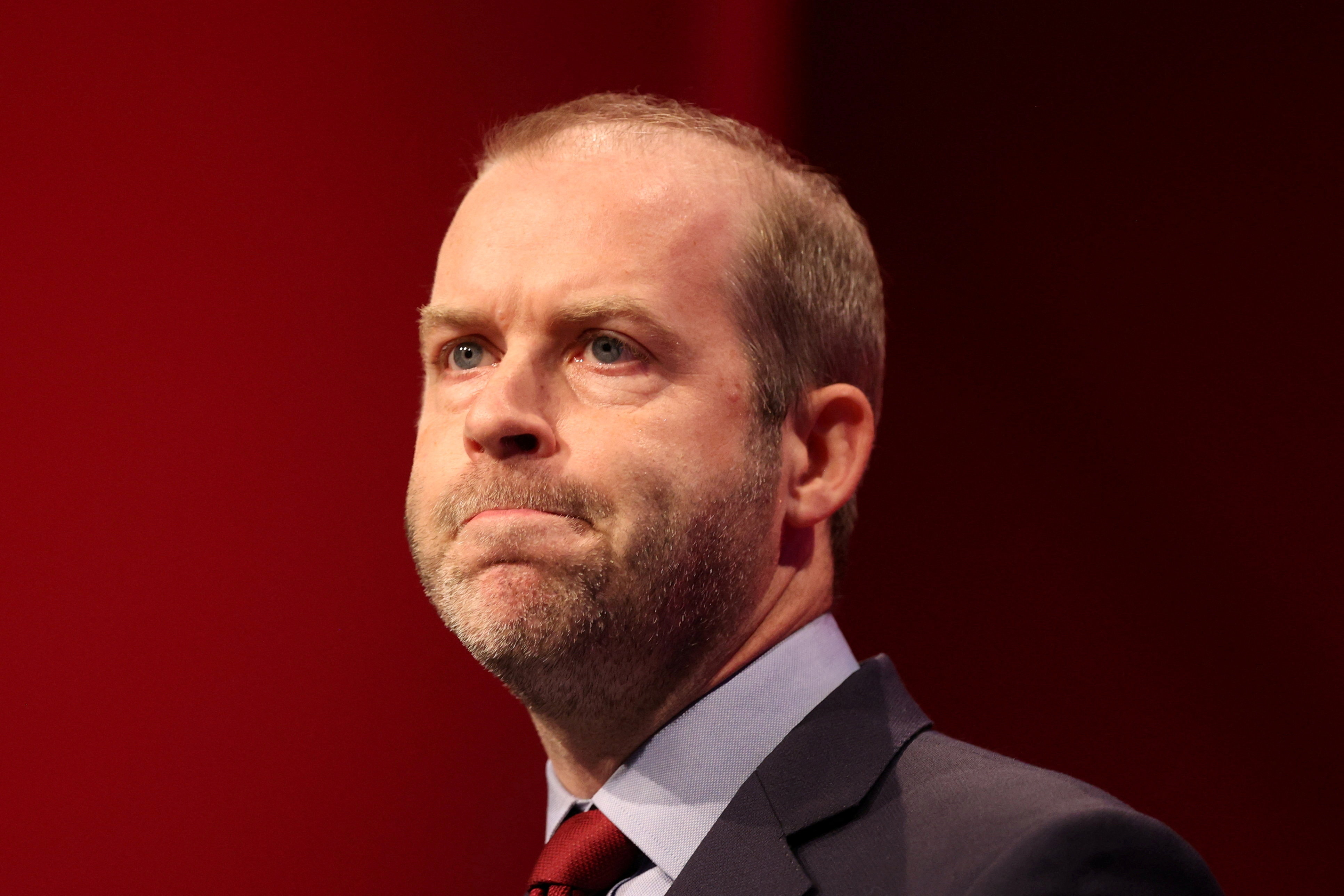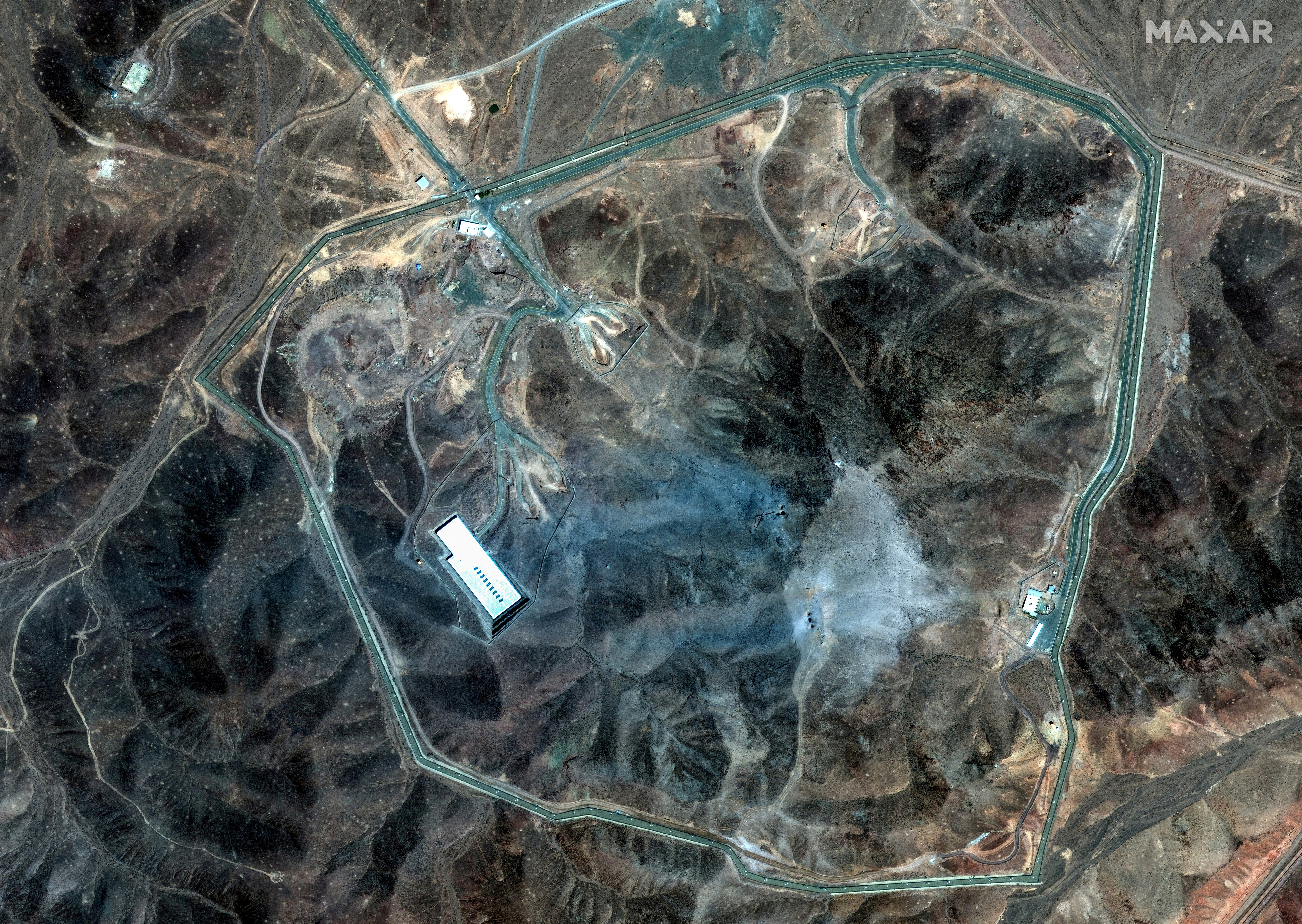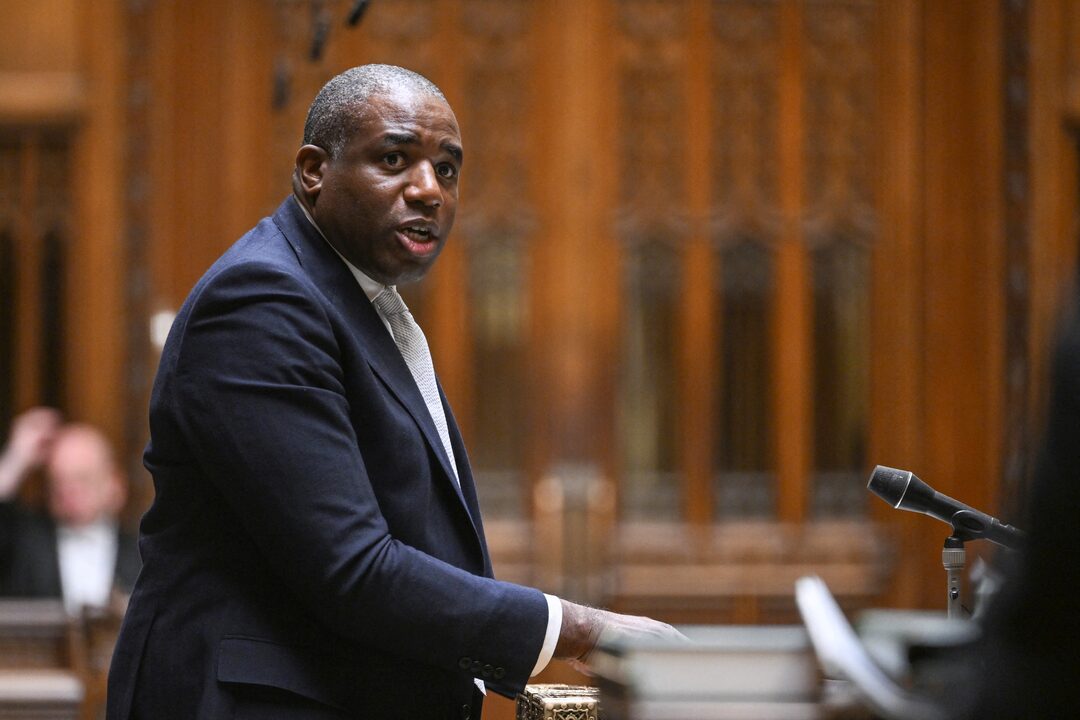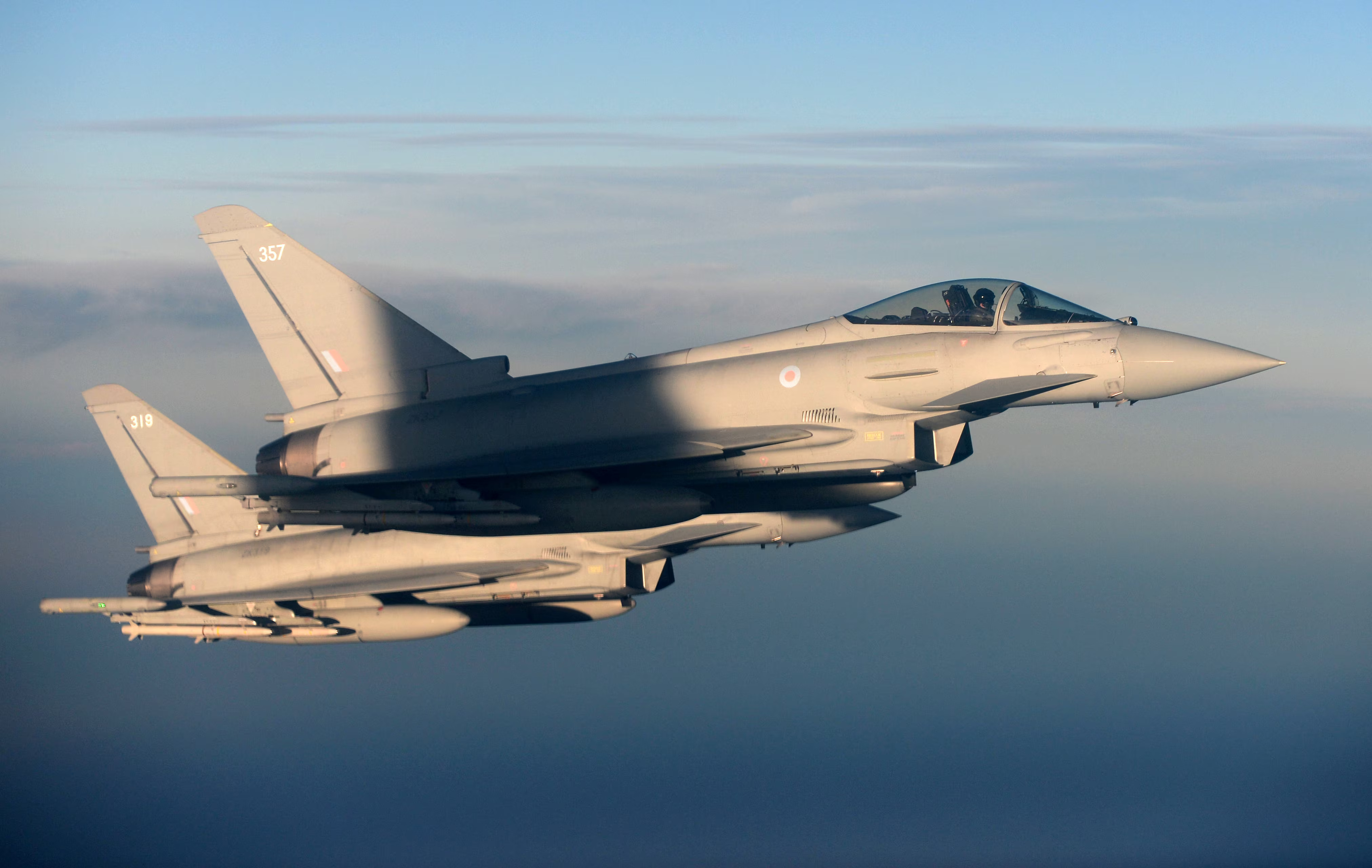There are “about 14” British Typhoon fighter jets currently stationed at the United Kingdom’s Akrotiri base in Cyprus, the country’s parliamentary under-secretary of state for the armed forces Luke Pollard said on Monday night.
Addressing the country’s parliament, he said that in addition to those already stationed on the island, the country’s Prime Minister Sir Keir Starmer “has made it very clear that should further resources be required, we will not hesitate to roll them forward”.
He also confirmed that the UK was not involved in bombing raids carried out by the United States on Iranian nuclear facilities over the weekend, echoing the words of the country’s Business Secretary John Reynolds on Sunday.
“The United Kingdom did not participate in them, and the UK and the US have a shared ambition that a nuclear bomb should not be held by the Iranian regime,” Pollard said.
He was also quizzed by MPs on the security of British air force bases in light of an incident which saw activists break into the Brize Norton airbase in the UK and spray paint into the engines of two military aircraft and the arrest of an individual on suspicion of espionage in Cyprus last week.
“On our sovereign base areas in Cyprus, it is essential that we look not only at how we can protect them, but at how we can protect them from the risk of Iranian retaliation, which is why we have enhanced the force protection measures on our bases in Cyprus,” he said.
He added that it was for this reason that Starmer has “ordered the further deployment of Typhoons at our base at RAF Akrotiri, and why we are investing in ground-based air defence there”.

On Sunday, Reynolds had been asked by radio station LBC whether the British government believed the US’ strikes on Iran were legal under international law.
He responded that “I couldn’t give you a view on that without having access to the kind of information the United States would have, nor can I give you a legal opinion from the British government on the US action”.
Pressed further, he said, “I am telling you I do not want to see the Iranian regime obtain a nuclear weapon because of the destabilisation Iran is involved in”.
The US had launched strikes on three nuclear facilities in Iran during the early hours of Sunday morning, with bombs falling on the Fordow, a uranium enrichment facility built under a mountain near the Iranian city of Qom, as well as facilities further south in Natanz and Isfahan.

Last week, it had been reported that the US may ask the UK for permission to station aircraft in Cyprus for future attacks on Iran, with those reports coming after Iran had warned the US, the UK, and France that their bases and ships in the region will be targeted if they help to stop its missile strikes on Israel.
Later, Iran’s ambassador in Nicosia Alireza Salarian said his country had “already raised this concern to the relevant authority” and added that “if we see any aggression from the third country, we have the right to response”.
The UK’s Defence Secretary John Healey had meanwhile said following the first deployment of British aircraft to the region that the country has “always supported Israel’s right to security”, and that it has “grave concerns about Iran’s nuclear programme”.
He later added that “a diplomatic resolution rather than military action is the only route to lasting stability”.

Earlier, the UK’s Foreign Secretary David Lammy had said the country’s bases in Cyprus are “hugely important at this time”.
“The government would be irresponsible if we did not account for all possibilities at this time,” he added.
He then went on to say that “this is a very tense time if you are in Jordan, the United Arab Emirates, Saudi Arabia, Bahrain, or Cyprus”.
Meanwhile, when asked if the UK would come to Israel’s aid if asked to do so, Chancellor of the Exchequer Rachel Reeves said that “we have, in the past, supported Israel when there have been missiles coming in.
“We’re sending in assets to both protect ourselves and also potentially to support our allies”.
Last year, Cyprus was the likely launchpad for the military support offered by the United Kingdom to defend Israel from a volley of Iranian missiles launched at the start of October.
The British defence ministry had at the time announced that two RAF Typhoon fighter jets and one Voyager air-to-air refuelling tanker “played their part in attempts to prevent further escalation in the Middle East”.
This, they said, demonstrated “the UK’s unwavering commitment to Israel’s security”.






Click here to change your cookie preferences